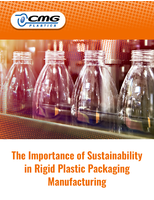BIO says biofuels tax compromise is a good first step.
Share:
Press Release Summary:
BIO has sent a letter to Sens. Dianne Feinstein (D-Calif.), Amy Klobuchar (D-Minn.), and John Thune (R-S.D.) thanking them for supportive, stable policies for advanced biofuels in the announced deal on immediate repeal of the Volumetric Ethanol Excise Tax Credit. However, BIO is concerned that the inclusion of annual caps on the cellulosic production tax credit will result in additional investor uncertainty that could limit effectiveness of program in attracting project financing.
Original Press Release:
Biofuels Tax Compromise a Good First Step, But Should Focus on Investment Climate for Advanced Biofuels, BIO Says
WASHINGTON- The Biotechnology Industry Organization (BIO) this week sent a letter to Sens. Dianne Feinstein (D-Calif.), Amy Klobuchar (D-Minn.) and John Thune (R-S.D.) thanking them for supportive, stable policies for advanced biofuels in the announced deal on immediate repeal of the Volumetric Ethanol Excise Tax Credit (VEETC). At the same time, the letter noted that small changes to the agreement would better ensure a more stable investment climate for advanced biofuels.
Brent Erickson, executive vice president of BIO's Industrial & Environmental Section, stated, "BIO and its member companies appreciate the policy actions to enhance the nation's energy security proposed by Senators Feinstein, Klobuchar and Thune. We share the Senators' view that supportive, stable federal policy is essential to ensuring the ability of advanced biofuels developers to move forward on first-of-a-kind commercial advanced biofuels projects. The compromise biofuels tax agreement recently communicated to Senate leadership contains important provisions for cellulosic and algae-based biofuels, including extension of the cellulosic biofuels production tax credit and accelerated depreciation for cellulosic biofuel property through 2015, and the addition of algae-based fuels to these programs.
"However, we are concerned that the inclusion of annual caps on the cellulosic production tax credit will result in additional investor uncertainty that could significantly limit the effectiveness of the program in attracting project financing. We also note that the agreement does not include any provisions targeted specifically at accelerating commercialization of new "drop-in" fuel molecules, which are a critical component to addressing many transportation fuel challenges.
"BIO and other advanced biofuels groups have long advocated for an investment tax credit (ITC) option for all non-commercial advanced biofuels technologies. We urge the Senate to consider inclusion of this proposal. We also urge inclusion of an extension of the alternative alcohols tax credit, which would ensure that termination of VEETC not inadvertently disrupt commercialization efforts for butanol and other alternative alcohols. The relatively small amount of funds necessary for these inclusions would be balanced by significant job creation and revenue generation throughout the country."
A recent BIO report, U.S. Economic Impact of Advanced Biofuels Production: Perspectives to 2030, finds that advanced biorefineries could create more than 800,000 new jobs throughout the economy by 2022. The study is available at bio.org/ind/EconomicImpactAdvancedBiofuels.pdf.
About BIO
BIO represents more than 1,100 biotechnology companies, academic institutions, state biotechnology centers and related organizations across the United States and in more than 30 other nations. BIO members are involved in the research and development of innovative healthcare, agricultural, industrial and environmental biotechnology products. BIO also produces the BIO International Convention, the world's largest gathering of the biotechnology industry, along with industry-leading investor and partnering meetings held around the world. BIO produces BIOtech NOW, an online portal and monthly newsletter chronicling "innovations transforming our world." Subscribe to BIOtech NOW.
Contacts
Biotechnology Industry Organization (BIO)
Paul Winters, 202-962-9237
pwinters@bio.org
www.bio.org




